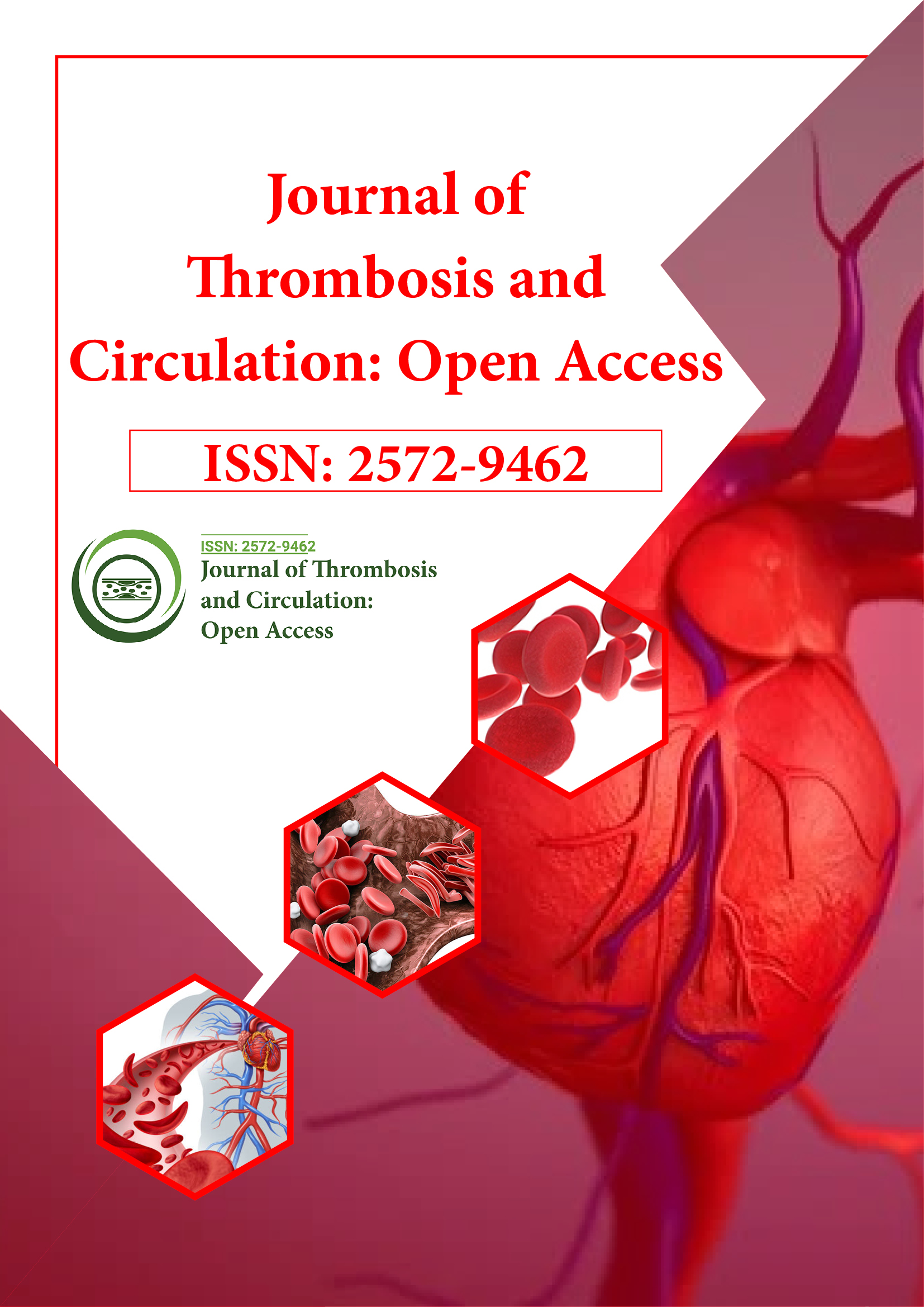Indexed In
- RefSeek
- Hamdard University
- EBSCO A-Z
- Publons
- Google Scholar
Useful Links
Share This Page
Journal Flyer

Open Access Journals
- Agri and Aquaculture
- Biochemistry
- Bioinformatics & Systems Biology
- Business & Management
- Chemistry
- Clinical Sciences
- Engineering
- Food & Nutrition
- General Science
- Genetics & Molecular Biology
- Immunology & Microbiology
- Medical Sciences
- Neuroscience & Psychology
- Nursing & Health Care
- Pharmaceutical Sciences
Commentary - (2024) Volume 10, Issue 1
Exploring the Complex Interactions of Immunity, Coagulation, and Tumor Cells
Pilar Moreno*Received: 01-Jan-2024, Manuscript No. JTCOA-24-25346; Editor assigned: 03-Jan-2024, Pre QC No. JTCOA-24-25346 (PQ); Reviewed: 17-Jan-2024, QC No. JTCOA-24-25346; Revised: 24-Jan-2024, Manuscript No. JTCOA-24-25346 (R); Published: 31-Jan-2024, DOI: 10.35248/2572-9462.24.10.265
Description
The complex exchange between immunity, coagulation, and tumor cells represents a dynamic within the tumor microenvironment. While the immune system plays an important role in recognizing and eliminating cancer cells, dysregulated immune responses can contribute to tumor progression and metastasis. Simultaneously, alterations in the coagulation cascade can promote tumor growth, angiogenesis, and immune evasion, creating a complex network of interactions that influence cancer development and progression.
Immune regulation of tumor progression
The immune system serves as a critical defense mechanism against cancer cells through immune surveillance, wherein immune cells recognize and eliminate malignant cells. Tumorinfiltrating lymphocytes, particularly cytotoxic T cells and Natural Killer (NK) cells, play a central role in tumor immune surveillance by recognizing tumor-specific antigens and inducing apoptosis in cancer cells.
However, tumors use various immune evasion strategies to escape immune detection and destruction, including the up regulation of immune checkpoint molecules such as programmed cell death protein 1 and Cytotoxic T-Lymphocyte- Associated protein 4 (CTLA-4). By engaging with their respective ligands on immune cells, these checkpoint molecules inhibit T cell activation and promote immune tolerance, enabling tumor cells to evade immune-mediated elimination and proliferate unchecked.
Coagulation cascade and tumor progression
The coagulation cascade, traditionally known for its role in hemostasis and thrombosis, is increasingly recognized as a fundamental regulator of tumor biology and metastasis. Tumor cells can activate the coagulation cascade through various mechanisms, including the expression of Tissue Factor (TF), a potent initiator of the extrinsic coagulation pathway.
TF expression by tumor cells promotes thrombin generation, fibrin deposition, and platelet activation within the tumor microenvironment, creating a procoagulant conditions that facilitates tumor growth, angiogenesis, and metastasis. Additionally, coagulation factors such as thrombin and fibrinogen can directly interact with cancer cells and promote their survival, proliferation, and invasion through activation of Protease-Activated Receptors (PARs) and integrin signaling pathways.
Bidirectional interactions and tumor immune evasion
The crosstalk between immunity, coagulation, and tumor cells extends beyond independent pathways, as evidenced by bidirectional interactions that influence tumor immune evasion and progression. Coagulation activation within the tumor microenvironment not only promotes thrombosis and vascular dysfunction but also modulates immune cell function and phenotype.
For example, fibrin deposition and platelet activation can create physical barriers that impede immune cell infiltration into the tumor, limiting antitumor immune responses. Moreover, coagulation proteases such as thrombin and factor Xa can directly cleave immune checkpoint molecules or cytokine receptors on immune cells, impairing their activation and effector functions.
Conversely, immune cells can reciprocally modulate coagulation dynamics within the tumor microenvironment through the release of cytokines, chemokines, and extracellular vesicles. For example, tumor-infiltrating T cells and NK cells can secrete interferon-gamma (IFN-γ) and tumor necrosis factor-alpha (TNF- α), which suppress TF expression on tumor cells and inhibit coagulation activation.
Therapeutic implications and future directions
Understanding the complex interactions between immunity, coagulation, and tumor cells has extreme implications for cancer therapy and patient management. Targeting fundamental components of this interconnected network, such as immune checkpoints, coagulation factors, and pro-angiogenic pathways, holds potential for developing novel therapeutic strategies to enhance antitumor immunity and inhibit tumor progression.
Immunotherapy approaches, including immune checkpoint inhibitors and Chimeric Antigen Receptor (CAR) T cell therapy, have revolutionized cancer treatment by controlling the power of the immune system to target and eradicate cancer cells. Similarly, anticoagulant agents and inhibitors of coagulation proteases are being investigated as potential adjunctive therapies to disrupt the procoagulant tumor microenvironment and improve the efficacy of immunotherapy.
In conclusion, the complex interactions of immunity, coagulation, and tumor cells represent a dynamic exchange that influences cancer progression, metastasis, and therapeutic responses. Further elucidation of these interactions through preclinical and clinical studies is essential for developing innovative therapeutic approaches that use the vulnerabilities of the tumor microenvironment and improve outcomes for patients with cancer. By targeting both the immune and coagulation systems, novel therapeutic strategies have the potential to reshape the region of cancer treatment and overcome immune evasion mechanisms employed by tumors.
Citation: Moreno P (2024) Exploring the Impact of Stress Response on Haemostasis and Coagulation Dynamics. J Thrombo Cir. 10:265.
Copyright: © 2024 Moreno P. This is an open-access article distributed under the terms of the Creative Commons Attribution License, which permits unrestricted use, distribution, and reproduction in any medium, provided the original author and source are credited.
